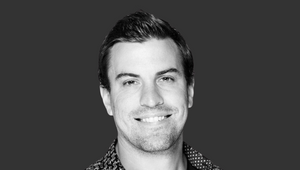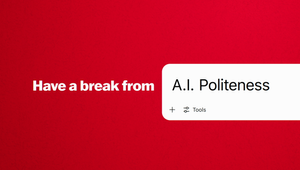
Indies on Business Models and Pricing Creativity: You Could Theoretically Do One Excellent Campaign and Retire

Charging for head hours must give way to value-based remuneration if independent agencies are to thrive, says The Hallway’s chief creative officer Simon Lee.
“Our remuneration model is something that we really need to look at,” Simon said at LBB’s roundtable of independent agencies, which also featured Bear Meets Eagle on Fire founder Micah Walker, Think HQ founder Jen Sharpe, Emotive managing director Michael Hogg, and Today the Brave founder Jaimes Leggett.
“I think some agencies are doing it better than others, but value based remuneration, rather than selling head hours will be important.
“It's like we're locked into an old model, but the industry's evolved and we're now these smaller, more agile, super creative agencies. We're still giving away our IP as part of head-hour deals. For us to really thrive, that needs to change.”
According to Micah, when BMEOF launched over five years ago, its first creative brief was “how do we get paid differently?”
“Rather than solving it for the industry,” Micah explained, “I just wanted it to work for us.
“Head hours make no sense. It's a 1960s model based on how accountancy firms worked. It leads down one road of efficiency, which eventually leads to commodity.
“We're output-based rather than value based. If we were actually paid proportionately for the impact of our work, you could theoretically do one excellent campaign and retire, because of the effect it had on a brand.”
Jen Sharpe from Think HQ believes that indies are doing so well right now partly because of the shift from retainers to project-based work.
“Values-based pricing in whatever model is the way to go,” Jen said. “Procurement is becoming involved earlier and earlier and having a greater sway on the creative ideas, which is bizarre.
“The big network agencies are geared towards monthly reporting and a profit margin that needs to be met monthly. This model is very much based on retainer clients, not project-based clients, so many network agencies are under huge pressure month by month because they're now dealing with project-based budgets.
“As an independent, you can look to manage that and be sympathetic if you've had a slow month, knowing that the next month will be busy. But explaining that in a reporting line of six people is very difficult.”
But independence also comes at a cost, especially for execs and owners.
Michael said it is important to remember that while many indies are emerging in the market, a lot are also closing.
“The more competition there is, the harder it gets,” Michael said. “I don't mean to sound cold, but I think having a robust market is healthy.
“If every indie that opens stays open, it's probably because they're doing what everyone else is doing or just being little versions of big agencies. If no one's failing, no one's trying anything different and new.
“You should want to be trying something different, not just trying to recreate a little period in a network agency you enjoyed in size, model, and remuneration.”
For Jaimes Leggett and Today the Brave, the dynamism of an indie is its real creative strength.
“Do indies have a greater creative opportunity than network agencies – probably not,” Jaimes, who is the former CEO of M&C Saatchi, said.
“Are independent agencies better placed to deliver really fucking amazing creative work? 100%. Because of the people, the culture, the vibe, the excitement, the enthusiasm, and that entrepreneurial spirit.”
Jaimes believes that indies aren’t intrinsically more creative than network agencies, but that the pendulum of the market has swung towards indies.
“Clients are looking for indies,” Jaimes said. “Great advertising people are looking to be in the environment, and there's a lot of goodwill and momentum in our environment.”
But with momentum comes the pressure of opportunity. Indies are all, to some extent, a labour of love initially, and carving out an identity and market niche can be exhausting. Micah, however, sees pressure differently.
“Not all pressure is created equal,” Micah says.
“There's self-applied pressure, that's good pressure, and I applaud anyone who says they aren’t driven by fear, because I'm totally driven by fear – I'm always sure we'll get there, and yet, always terrified that we won't. But I also like that.
“It's the other pressure that gets you. The pressure of conformity, of delivering based on something that's counterintuitive, to drive the thing you didn't build, and you don't necessarily like anymore.”
For Jaimes, the difference between productive pressure and unproductive stress comes down to indie agency leaders opting in.
“It's very different when the pressure you feel is imposed on you by others and you're out of control,” Jaimes said.
For Jen, the pressure of running an indie is really more of an opportunity to expand the advertising industry bubble beyond the status quo.
“I believe last year, the overwhelming number of graduates going into network advertising agencies were from private schools,” Jen said.
“I can't, for the life of me, work out why someone from a private school is going to have better ideas and be able to solve problems better than someone else.
“In the past few decades, the audience to whom we're trying to solve problems and communicate has completely changed in Australia. Nearly half of the population was either born overseas or had a parent born overseas and communicating with this audience is something that doesn't get addressed or explored because it's not part of the bubble in which this industry operates.
“As we grow, I genuinely care about getting a diverse staff base, because our business model now is based on the diversity of Australian audiences.”















